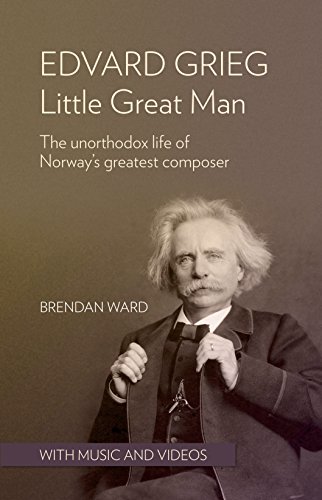-
The Adventures of Huckleberry Finn
Mark Twain
language (The Classics, June 11, 2020)Mark Twain’s tale of a boy’s picaresque journey down the Mississippi on a raft conveyed the voice and experience of the American frontier as no other work has done before. When Huck escapes from his drunken father and the ‘sivilizing’ Widow Douglas with the runaway slave Jim, he embarks on a series of adventures that draw him to feuding families and the trickery of the unscrupulous ‘Duke’ and ‘Daupin’. Beneath the exploits, however, are more serious undercurrents — of slavery, adult control and, above all, of Huck’s struggle between his instinctive goodness and the corrupt values of society, which threaten his deep and enduring frienship with Jim.All modern American literature comes from… “Huckleberry Finn”. It’s the best book we’ve had. —Ernest HemingwayProbably the most stupendous event of my whole life. —Henry Louis Mencken[Huck is] one of the permanent symbolic figures of fiction, not unworthy to take a place with Ulysses, Faust, Don Quixote, Don Juan, Hamlet… —T. S. EliotThe mark of how good ‘Huckleberry Finn’ has to be is that one can compare it to a number of our best modern American novels and it stands up page for page, awkward here, sensational there — absolutely the equal of one of those rare incredible first novels that come along once or twice in a decade. —Norman MailerThe first truly American writer, and all of us since are his heirs. —William Faulkner
-
Wuthering Heights
Emily Brontë
language (The Classics, June 16, 2020)Considered lurid and shocking by mid-19th-century standards, Wuthering Heights was initially thought to be such a publishing risk that its author, Emily Brontë, was asked to pay some of the publication costs.Wuthering Heights is a wild, passionate story of the intense and almost demonic love between Catherine Earnshaw and Heathcliff, a foundling adopted by Catherine’s father. After Mr Earnshaw’s death, Heathcliff is bullied and humiliated by Catherine’s brother Hindley and wrongly believing that his love for Catherine is not reciprocated, leaves Wuthering Heights, only to return years later as a wealthy and polished man. He proceeds to exact a terrible revenge for his former miseries. The action of the story is chaotic and unremittingly violent, but the accomplished handling of a complex structure, the evocative descriptions of the lonely moorland setting and the poetic grandeur of vision combine to make this unique novel a masterpiece of English literature.A fiend of a book — an incredible monster... The action is laid in hell, — only it seems places and people have English names there. —Dante Gabriel RossettiA monument of the most striking genius that nineteenth-century womanhood has given us. —Clement ShorterThe greatest work of fiction by any man or woman Europe has produced to date. —Anthony LudoviciThere is no “I” in ‘Wuthering Heights’. There are no governesses. There are no employers. There is love, but it is not the love of men and women. Emily was inspired by some more general conception. The impulse which urged her to create was not her own suffering or her own injuries. She looked out upon a world cleft into gigantic disorder and felt within her the power to unite it in a book. —Virginia Woolf X
X
-
The Divine Comedy by Dante, Illustrated, Hell, Complete
Dante Alighieri, Gustave Doré, Henry Francis Cary
eBook (Annea Classics, March 24, 2011)This book was converted from its physical edition to the digital format by a community of volunteers. You may find it for free on the web. Purchase of the Kindle edition includes wireless delivery.
-
The Innocents Abroad
Mark Twain
eBook (Annea Classics, March 17, 2011)This book was converted from its physical edition to the digital format by a community of volunteers. You may find it for free on the web. Purchase of the Kindle edition includes wireless delivery.
-
Kim
Rudyard Kipling, Annea Classics
eBook (Annea Classics, Jan. 27, 2017)Kim is a novel by Nobel Prize-winning English author Rudyard Kipling. It was first published serially in McClure's Magazine from December 1900 to October 1901 as well as in Cassell's Magazine from January to November 1901, and first published in book form by Macmillan & Co. Ltd in October 1901. The story unfolds against the backdrop of The Great Game, the political conflict between Russia and Britain in Central Asia. It is set after the Second Afghan War which ended in 1881, but before the Third, probably in the period 1893 to 1898.The novel is notable for its detailed portrait of the people, culture, and varied religions of India. "The book presents a vivid picture of India, its teeming populations, religions, and superstitions, and the life of the bazaars and the road."BONUS :• Kim Audiobook.• The 19 Best Rudyard Kipling Quotes.• Biography of Rudyard Kipling
-
Our Mutual Friend
Charles Dickens
eBook (Annea Classics, May 17, 2012)This book was converted from its physical edition to the digital format by a community of volunteers. You may find it for free on the web. Purchase of the Kindle edition includes wireless delivery.
-
The Shunned House
H. P. (Howard Phillips) Lovecraft
eBook (OBG Classics, March 24, 2011)This book was converted from its physical edition to the digital format by a community of volunteers. You may find it for free on the web. Purchase of the Kindle edition includes wireless delivery.
-
Edvard Grieg: Little Great Man: The unorthodox life of Norway's greatest composer
Brendan Ward
language (ABC Classics, Aug. 7, 2015)Edvard Grieg: Little Great Man is an eBook discovering the life and music of Norway’s greatest composer. Also available from iTunes: Morning Mood, an album of Grieg’s solo piano music performed by legendary Australian pianist Gerard Willems.
-
The Great Gatsby
F. Scott Fitzgerald
Paperback (Alma Classics, Oct. 20, 2016)Invited to an extravagantly lavish party in a Long Island mansion, Nick Carraway, a young bachelor who has just settled in the neighbouring cottage, is intrigued by the mysterious host, Jay Gatsby, a flamboyant but reserved self-made man with murky business interests and a shadowy past. As the two men strike up an unlikely friendship, details of Gatsby's impossible love for a married woman emerge, until events spiral into tragedy.Regarded as Fitzgerald's masterpiece and one of the greatest novels of American literature, The Great Gatsby is a vivid chronicle of the excesses and decadence of the “Jazz Age”, as well as a timeless cautionary critique of the American dream. Z+
Z+
-
Anne's House of Dreams
Lucy Maud Montgomery, Annea Classics
eBook (Annea Classics, Feb. 1, 2017)Anne's House of Dreams is a novel by Canadian author Lucy Maud Montgomery. It was first published in 1917 by McClelland, Goodchild and Stewart.The novel is from a series of books written primarily for girls and young women, about a young girl named Anne Shirley. The books follow the course of Anne's life. It is set principally on Canada's Prince Edward Island, Montgomery's birthplace and home for much of her life.The series has been called classic children's literature, and has been reprinted many times since its original publication.Anne's House of Dreams is book five in the series, and chronicles Anne's early married life, as she and her childhood sweetheart Gilbert Blythe begin to build their life together.BONUS :• Anne's House of Dreams Audiobook.• Biography of Lucy Maud Montgomery.
-
Nicomachean Ethics
Aristotle, D. P. Chase
Paperback (SDE Classics, Nov. 5, 2019)For one swallow does not make a summer, nor does one day; and so too one day, or a short time, does not make a man blessed and happy. Widely considered to be one of the most important works written on philosophy, Aristotle’s Nicomachean Ethics is separated into 10 books that cover topics such as friendship, happiness, and the invaluable virtues that a person should strive to obtain.
-
The World Set Free
H. G. (Herbert George) Wells
eBook (Annea Classics, May 12, 2012)This book was converted from its physical edition to the digital format by a community of volunteers. You may find it for free on the web. Purchase of the Kindle edition includes wireless delivery.